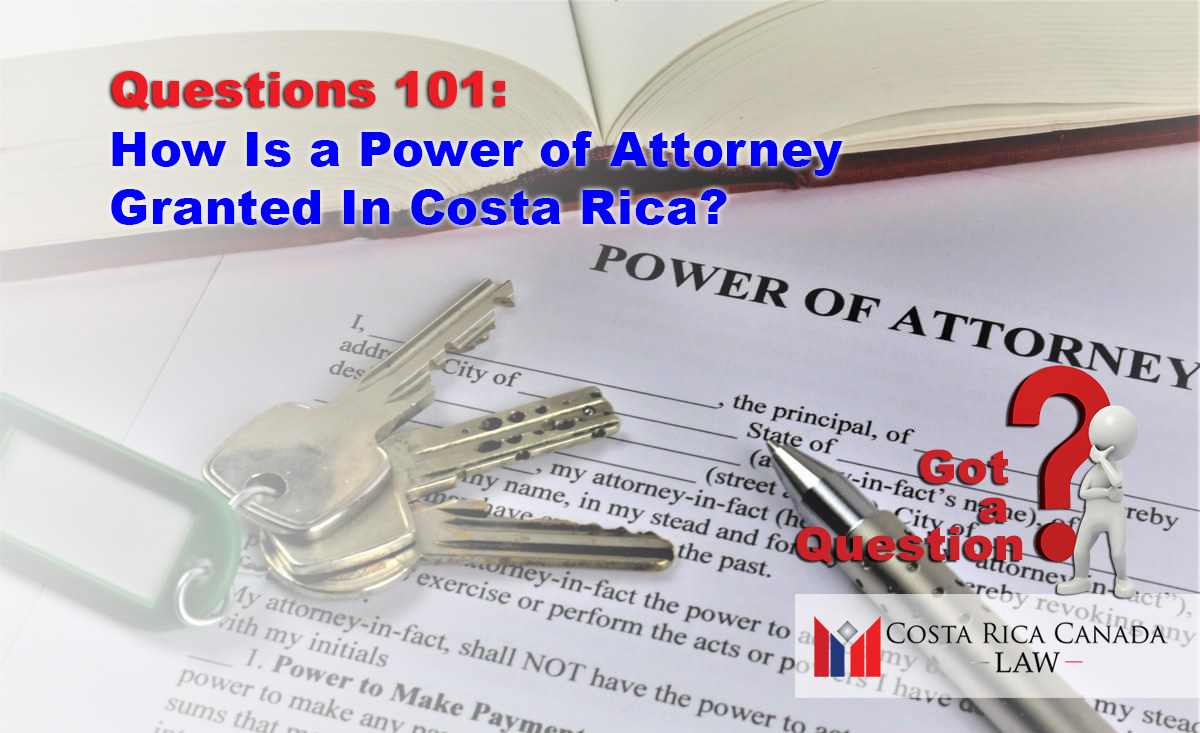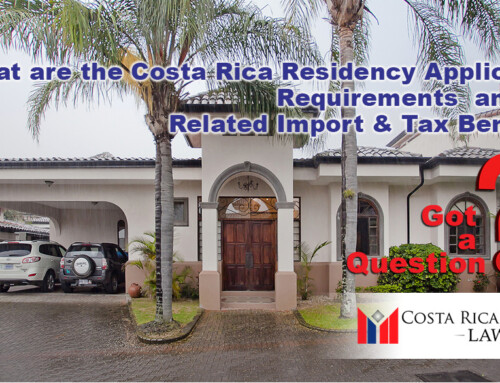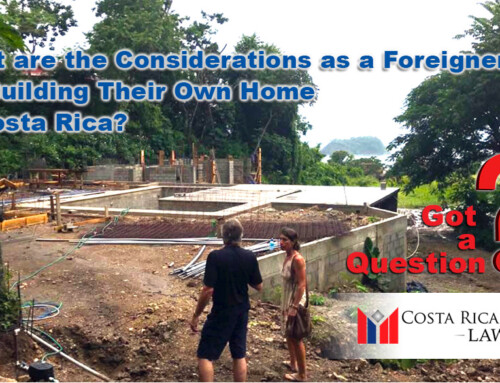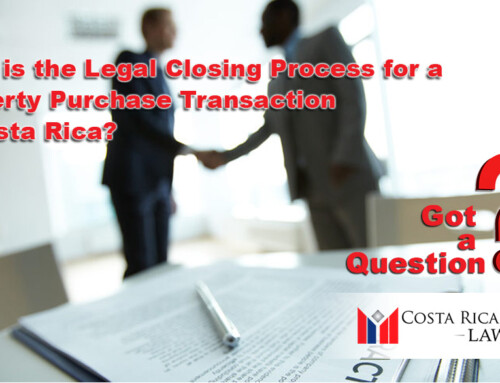How Is a Power of Attorney Granted In Costa Rica?
Costa Rica has the Roman Civil Law as its Legal System, where the requirements for the formality of documentation are much different than those similar requirements under English Common Law, which is the Legal System predominantly utilized in Canada and the United States. In Common Law jurisdictions, the granting a Power of Attorney is a relatively simple process, which in most cases, can be prepared in writing between private individuals and witnessed, without the necessity of professional legal intervention. In Costa Rica, this is not the case. A valid and enforceable Power of Attorney, to be utilized for an act in Costa Rica, must be in the form of a Public Deed prepared in the Spanish language by a Costa Rica Notary Public.
Types of Power of Attorney
In Costa Rica, there are three basic types of Power of Attorney documents, Special Power of Attorney, Administrative Power of Attorney, and General Power of Attorney. Each of the three types of Power of Attorney have different formal requirements for their preparation and to be enforceable. In the case of Administrative and General Powers of Attorney, there is also the requirement to register the document in the National Registry.
Special Power of Attorney
The Special Power of Attorney is used to grant the power to the Grantee the power to act on behalf of the Grantor, in a single, or series of acts, related to a single legal transaction. An example of this would be to act for a registered owner seller in a property sale, where the Power of Attorney would provide for all, or certain acts related to the sale, such as the signing of the Property Transfer Deed at closing, the receipt and distribution of the sale proceeds, etc. Except in the circumstances of a Special Power of Attorney affecting Rights to Real Property, where a Costa Rica company will be the Grantor of the Special Power of Attorney, a notarized Proxy Letter executed by all of the company shareholders in a foreign jurisdiction, may provide authority for a party in Costa Rica to act on behalf of the shareholders, to issue the Power of Attorney by way of a Company Resolution that is issued in a Public Deed prepared by a Costa Rica Notary Public.
Administrative Power of Attorney
The Administrative Power of Attorney is used to grant the power to the Grantee the power to act on behalf of the Grantor, in administrative matters related to such activities as the on-going management of a business, or property, owned by the Grantor. However, it should be noted, this Power does not extend to the entering into of Lease Agreements for Real Property, where either a Special Power of Attorney, or General Power of Attorney is required.
General Power of Attorney
The General Power of Attorney is used to grant all-encompassing powers to the Grantee, to act on behalf of the Grantor in all matters. Although limited restrictions may be placed in the General Power of Attorney document to control the actions of the Grantee, this Power of Attorney is a virtual “stepping into the shoes” of the Grantor by the Grantee and accordingly, it must be granted with extreme caution. Without specific restrictions being added, the General Power of Attorney provides the Grantee with the power to act on behalf of the Grantor to access bank accounts, sell property, make critical business decisions, and the like.
No Recognition of Foreign Powers of Attorney
No Power of Attorney issued in a foreign jurisdiction to that of Costa Rica will be recognized for use in Costa Rica. The only exception would be where a Grantor attends at the Costa Rica Embassy, or Consulate in the foreign jurisdiction where a Costa Rica Notary Public would be available to prepare and authorize the Power of Attorney in a Public Deed, or a Costa Rica Notary Public travels to the foreign jurisdiction to attend on the execution of the Public Deed by the Grantor.






